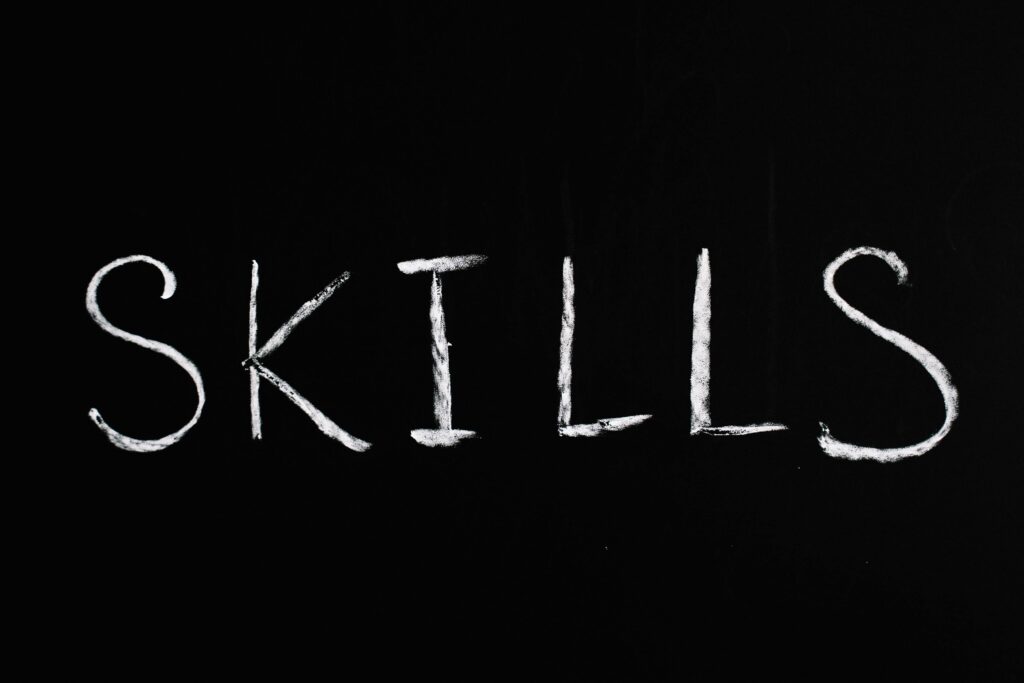Discovering and Showcasing Your Personal Skill Set

Table of Contents
In today’s fast-paced professional landscape, developing a robust skill set is more crucial than ever. Whether you’re seeking career advancement, contemplating a career change, or simply aiming to enhance your personal growth, the ability to identify your skills can help you navigate your professional journey with greater confidence. But how do you go about discovering and accurately showcasing these skills?
In this article, we will delve into effective strategies for identifying your skills, emphasizing their importance, and providing you with actionable steps to present them effectively. By the end of this guide, you will feel empowered to take control of your career and present yourself in the best light to potential employers or clients.
Understanding the Importance of Identifying Your Skills
Identifying your skills is not merely an exercise in self-reflection—it’s a foundational step for your career development. Skills can be broadly categorized into hard skills (technical abilities relevant to specific tasks) and soft skills (interpersonal abilities that influence how you work with others).
Why Identifying Your Skills Matters
- Career Advancement: Knowing your skills helps you target roles that are aligned with what you can offer, increasing your chances of securing promotions or new employment opportunities.
- Enhanced Self-Awareness: Understanding your skill set aids in personal development, allowing you to focus on areas that need improvement or further learning.
- Effective Communication: Being able to articulate your skills clearly can enhance your interactions in networking events, interviews, and on professional platforms like LinkedIn.
Methods to Identify Your Skills

Identifying your skills can be a transformative exercise. Here are some effective methods to guide you through the process:
Self-Assessment
Begin by introspecting about your professional journey:
- List Your Experiences: Write down all your previous jobs, internships, volunteer experiences, and educational endeavors.
- Highlight Responsibilities: For each, note down the key responsibilities you had and the skills you utilized to perform your tasks effectively.
- Performance Reviews: Revisit any past performance reviews or feedback you’ve received from colleagues or supervisors—these often contain valuable insights into your strengths.
Skill Inventories and Assessments
Utilize online tools for a structured approach:
- Skill Assessment Tools: Platforms such as Coursera, LinkedIn Learning, and various career services offer skill assessment quizzes. These tools can identify both hard and soft skills based on your input.
- Career Tests: Consider taking personality tests such as the Myers-Briggs Type Indicator (MBTI) or the StrengthsFinder assessment. These tests often highlight inherent qualities and skills you may possess.
Peer Feedback
Sometimes we may overlook our strengths. Seeking external validation can provide a fresh perspective:
- Ask for Input: Reach out to colleagues, mentors, or friends and ask them what skills they perceive you excel at.
- Conduct Informal Surveys: If applicable, use tools like Google Forms to gather feedback about your skills from a wider audience.
Categorizing Your Skills

Once you have gathered a comprehensive list of your skills, the next step is to categorize them. Here’s how:
Hard Skills vs. Soft Skills
Hard Skills are typically quantifiable and often gained through education or training. Examples include:
- Proficiency in software (e.g., Microsoft Excel, Adobe Creative Suite)
- Technical skills (e.g., coding, data analysis)
- Language proficiency
Soft Skills are more intangible but equally important. They include:
- Communication skills
- Leadership abilities
- Problem-solving capabilities
Create a Skill Matrix
Consider making a skill matrix to visualize your strengths. The matrix might include:
| Skill | Type | Proficiency Level (1-5) |
|---|---|---|
| Project Management | Hard | 4 |
| Team Collaboration | Soft | 5 |
| Data Analysis | Hard | 3 |
| Communication Skills | Soft | 4 |
Showcasing Your Skills
Identifying your skills is just the beginning; showcasing them strategically is essential to stand out. Here are various ways to effectively present your skills:
Crafting Your Resume
Your resume should reflect your skills aligned with the job description:
- Tailor Your Skills Section: Align your skill set with the keywords mentioned in the job description.
- Utilize Action Verbs: Use action verbs to describe your skills in context. For example, instead of saying “Good at project management,” say “Managed cross-functional teams to deliver projects on time and under budget.”
Utilizing LinkedIn
LinkedIn is a powerful platform to present your skill set. Here’s how:
- Skills & Endorsements: Add relevant skills to your LinkedIn profile. Ask colleagues to endorse these skills to enhance credibility.
- Recommendations: Request written recommendations that highlight specific skills. These testimonials can provide social proof of your capabilities.
Personal Branding Through Networking
Engage with professionals in your industry:
- Join Professional Groups: Participate in discussions on platforms like LinkedIn or industry-specific forums to showcase your expertise.
- Attend Workshops and Webinars: Never miss opportunities for improvement and networking. Workshops related to your field are perfect venues to learn and showcase your skills.
Continual Improvement: Learning and Development
Identifying your skills should not be a one-time exercise. The professional world is always evolving, and so should your skills. Here’s how you can ensure ongoing skill development:
Pursue Further Education
Engage in continuous learning:
- Enroll in Online Courses: Websites like Udemy and edX offer courses to help you refine or acquire new skills.
- Seek Certifications: Obtaining professional certifications can provide you with not just new skills but also a competitive edge in your field.
Attend Industry Conferences
Participate in conferences related to your industry:
- Networking Opportunities: Industry events can connect you with peer professionals, exposing you to new skills and trends.
- Hands-On Workshops: Many conferences offer workshops that help you gain practical, hands-on experience with emerging skills.
Conclusion: Your Skills Are Your Asset

Identifying and showcasing your skills effectively is crucial for personal career growth and success. By using the methods outlined above—self-assessment, peer feedback, and leveraging online resources—you can gain a clearer understanding of what makes you unique in the professional realm.
As you cultivate your abilities, don’t forget to present these with confidence in your resume, LinkedIn profile, and networking interactions.
Are you ready to take the first step in identifying your skills? Start by completing a self-assessment today, and don’t hesitate to share your findings or questions in the comments below. Let’s embark on this journey of professional development together!



